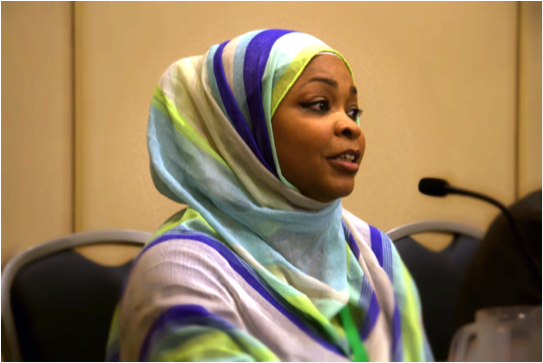By Kafayat Oyewo-Oyelere
Islam holds women in high esteem, valuing them as essential members of society, caring, intelligent, soft-hearted, loving, and worthy of respect.
The importance of women is so great that an entire chapter of the Qur’an is named after them: Surah An-Nisa (The Women).
Women’s Liberation in Islam
Before Islam, the condition of women in pre-Islamic Arabia was grim. Pagan Arabs practiced female infanticide, burying baby girls alive out of shame or fear of poverty. Islam came as a force of liberation, abolishing these inhumane practices and restoring dignity to women.
Islam defines women as independent, complete human beings, not as extensions or property of men.
The Qur’an emphasizes that both men and women are equally accountable before God and promises:
1. The same reward for good conduct
2. The same punishment for evil conduct
Women as Signs of God’s Mercy
The Qur’an beautifully acknowledges the special role of women:
Qur’an 30:21
“And among His signs is that He created for you mates from among yourselves, that you may find tranquility in them; and He placed between you affection and mercy.”
Marriage, love, and companionship are presented as divine blessings, a sign of God’s mercy to humankind.
Equality in Humanity:
Islam teaches that all human beings, regardless of gender share the same origin and dignity.
Qur’an 49:13
“O mankind, indeed We have created you from male and female and made you peoples and tribes that you may know one another…”
This verse highlights that no gender is superior over the other in essence; piety and good deeds are what truly distinguish people in God’s sight.
Women’s Rights in Islam
1. Right to Inheritance: Surah An-Nisa 4:12 outlines a woman’s right to inherit as a mother, wife, daughter, or sister.
A wife receives 1/4 of her husband’s estate if they have no children and 1/8 if they do.
This distribution is not because she is inferior, but because Islamic inheritance law also ensures she benefits from the shares of her male relatives (e.g., father’s or brother’s shares) for her welfare and that of her children.
2. Right to Choose Her Spouse: A woman has the full right to choose whom she marries. A narration tells of a woman who approached the Prophet Muhammad (peace be upon him) after her family arranged her marriage without her consent. The Prophet validated that if she was unhappy, the marriage was invalid.
Her consent is essential marriage in Islam is a mutual contract, not a forced arrangement.
3. Right to Own and Retain Property: Islam guarantees a woman’s right to own, manage, and dispose of her own wealth independently.
4. Right to Retain Her Identity: Women are allowed to keep their family names. For example, Fatimah bint Muhammad retained her father’s name.
Qur’an 33:5 advises: “Call them by their fathers’ names.”
Spiritual Equality and Accountability
Women share the same religious and spiritual responsibilities as men.
Qur’an 9:72
Women are equally eligible for salvation.
Qur’an 9:71
Women are encouraged to promote good and forbid evil, just like men.
Qur’an 4:19
“It is not lawful for you to inherit women against their will. And do not constrain them in order to take part of what you have given them, unless they commit a clear immorality. And live with them in kindness.”
This verse emphasizes kindness, respect, and fair treatment within marriage.
Correcting Misconceptions
Some misconceptions exist, such as the belief that a woman’s lesser share in inheritance reflects her inferiority. In reality, Islam balances inheritance shares with men’s financial obligations and ensures women benefit indirectly from other shares.
Conclusion
Islam honors women by granting them rights, protection, and dignity. Far from being oppressed, Muslim women are spiritually equal, financially independent, and socially respected members of society. Islam’s teachings on women highlight justice, balance, and compassion and values much needed in every era.







